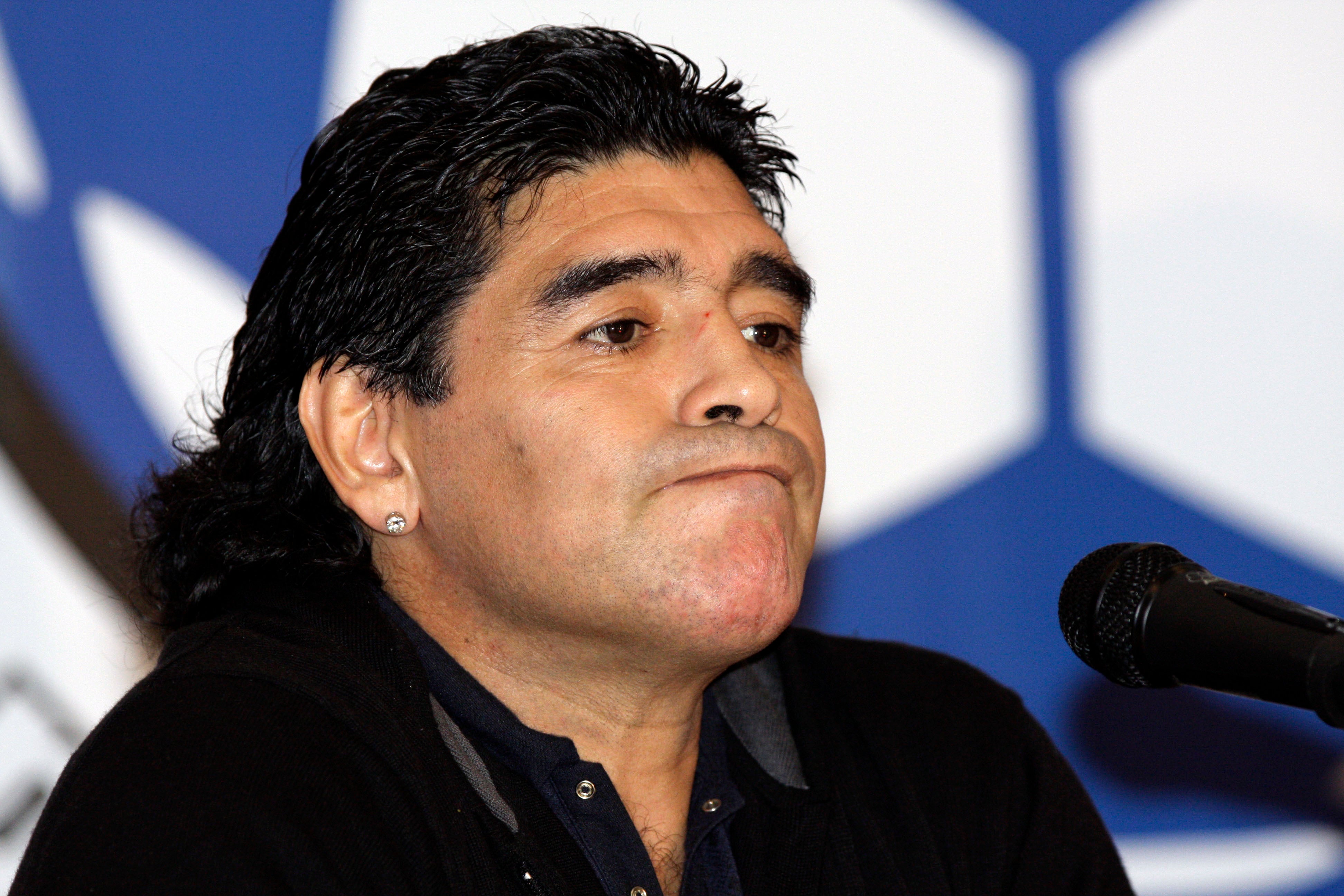Diego Maradona homicide case faces uncertainty after new medical report
Diego Maradona died from a heart attack in 2020 while recovering from brain surgery

Your support helps us to tell the story
From reproductive rights to climate change to Big Tech, The Independent is on the ground when the story is developing. Whether it's investigating the financials of Elon Musk's pro-Trump PAC or producing our latest documentary, 'The A Word', which shines a light on the American women fighting for reproductive rights, we know how important it is to parse out the facts from the messaging.
At such a critical moment in US history, we need reporters on the ground. Your donation allows us to keep sending journalists to speak to both sides of the story.
The Independent is trusted by Americans across the entire political spectrum. And unlike many other quality news outlets, we choose not to lock Americans out of our reporting and analysis with paywalls. We believe quality journalism should be available to everyone, paid for by those who can afford it.
Your support makes all the difference.A medical examiner’s report into the death of Argentine soccer legend Diego Maradona injected uncertainty Monday into the criminal negligence case brought against eight medical workers involved in his case a month before they are set to stand trial for homicide.
A forensic expert conducted the study at the behest of one of the main defendants, Maradona’s neurosurgeon Leopoldo Luque, in an effort to challenge the 2021 medical examination that held Luque and other doctors responsible for what it described as the soccer star’s otherwise avoidable death. The defendants have denied any violations or irregularities in Maradona’s treatment.
Maradona, famous for leading Argentina to victory in the 1986 World Cup and back to the final four years later, died from a heart attack in 2020 while recovering from brain surgery.
His death at age 60 stunned and devastated a generation of soccer fans and sent all of Argentina into mourning. Within days, the country became consumed by questions about his final, perplexing hours, a frenzy of suspicion that intensified as police officers raided his doctors’ homes and offices and Maradona’s family pressed the judiciary to intervene.
Prosecutors ultimately charged the eight medical workers with homicide — a serious accusation that leaves open the possibility of presumed intent and carries possible prison sentences from eight to 25 years. The trial is set to start June 4.
Medical examiner Pablo Ferrari’s report, released Monday, concluded that Maradona’s rapid, erratic heartbeat was either of natural origin or stemmed from an “external” factor, possibly a drug like cocaine that Maradona was known to have abused in the past. Ferrari said he couldn’t do a toxicology report based on Maradona’s insufficient urine sample.
The findings contradict those of a 20-member medical panel appointed to investigate Maradona’s death.
That 2021 report accused Maradona’s medical team of acting in an “inappropriate, deficient and reckless manner,” leaving the soccer player in agony and without help for more than 12 hours before his death.
Ferrari’s report disputed the severity of that episode, contending the arrhythmia could not have triggered agony for more than “a few minutes or at most a few hours.”
“This marks a radical turn in the case,” Vadim Mischanchuk, the defence lawyer representing Maradona’s psychiatrist, Agustina Cosachov, told local media. “The account goes from being a cardiac event that lasts many days to one that lasts minutes.”
The prosecutor’s office criticized the expert’s report as hastily cobbled together in 72 hours and accused Ferrari of neglecting four years of evidence in favour of “a minimal slice of evidence offered by the defence.”
“There is no twist in the case,” prosecutors said.
Join our commenting forum
Join thought-provoking conversations, follow other Independent readers and see their replies
Comments